I trying to access 2 Elasticsearch Server instance through HighLevelRestClient but I couldn't through this array object
HttpHost[] httpHost = new HttpHost(hostName[i...], Integer.parseInt(hostName[i..]), "http");
In hostname i have 2 values in the restHighLevelClient = new RestHighLevelClient( RestClient.builder(httpHost));
I'm also unable to access through second array instance.
Can I have 2 configuration Class if such way a how to create 2 instance of HighLevelRestClient
Or is it any possible way through 2 bean instance if such a way how it is possible
Since we need to have 2 different restHighLevelClient instance.
Kindly let me know in case of more information needed.
Code
import org.apache.http.HttpHost;
import org.elasticsearch.client.RestClient;
import org.elasticsearch.client.RestHighLevelClient;
import org.slf4j.Logger;
import org.slf4j.LoggerFactory;
import org.springframework.beans.factory.annotation.Value;
import org.springframework.beans.factory.config.AbstractFactoryBean;
import org.springframework.context.annotation.Configuration;
@Configuration
public class AppElasticSearchConfiguration extends AbstractFactoryBean<RestHighLevelClient> {
private static final Logger LOG = LoggerFactory.getLogger(AppElasticSearchConfiguration.class);
@Value("${application.elasticsearch.host}")
private String hostName[];
private RestHighLevelClient restHighLevelClient;
@Override
public void destroy() {
try {
if (restHighLevelClient != null) {
restHighLevelClient.close();
}
} catch (final Exception e) {
LOG.error("Error closing ElasticSearch client: ", e);
}
}
@Override
public Class<RestHighLevelClient> getObjectType() {
return RestHighLevelClient.class;
}
@Override
public boolean isSingleton() {
return false;
}
@Override
public RestHighLevelClient createInstance() {
return buildClient();
}
private RestHighLevelClient buildClient() {
try {
HttpHost[] httpHost = null;
if(hostName!=null) {
httpHost = new HttpHost[hostName.length];
for (int i = 0; i < httpHost.length; i++) {
httpHost[i] = new HttpHost(hostName[i].split(":")[0],
Integer.parseInt(hostName[i].split(":")[1]), "http");
}
}
restHighLevelClient = new RestHighLevelClient( RestClient.builder(httpHost));
} catch (Exception e) {
LOG.error(e.getMessage());
}
return restHighLevelClient;
}
//public RestHighLevelClient getAppRestHighLevelClient() { return restHighLevelClient; }
}
